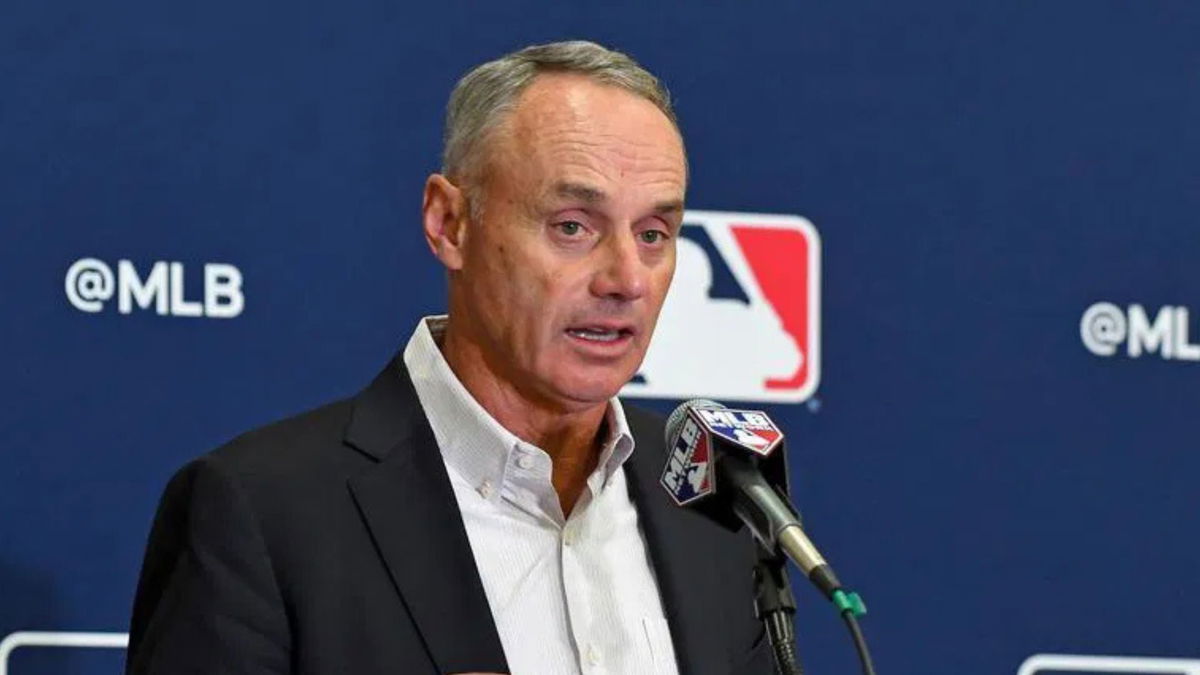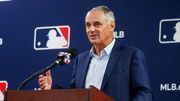
Imago
Image: IMAGO

Imago
Image: IMAGO
Major League Baseball likes to celebrate its grand traditions, but lately it has been different. The Seattle Mariners have been pulled into the latest drama, one where the line between fan passion and fan obsession dissolves completely. What was once billed as engagement now feels like harassment with a sportsbook receipt attached. MLB, as usual, looks unprepared for the storm it invited through its gates.
Watch What’s Trending Now!
The MLB needs to do something about this, like right now, because things are getting out of hand. While most fans at the end of any game have constructive criticism for the players, some fans take out all their frustration on the players. What frustration, you ask? It may be the frustration that they bet their hard-earned money on a team, and it didn’t go their way. This isn’t just my feeling; most of the fans have this feeling, and the players think so too.
It was revealed by The New York Post that Seattle Mariners reliever Tayler Saucedo and his girlfriend faced online threats after his imperfect outing. He said, “I understand wanting me gone after today and this year as a whole… But messaging me this bulls–t and my girlfriend and sending this stuff is beyond baseball. It’s insane how comfortable people are sending this stuff… Tell me I suck all you want, that’s fine, but at some point we gotta get a grip.”
ADVERTISEMENT
When Mariners pitcher Tayler Saucedo revealed that online comments had spilled over to his girlfriend, the ugliness became personal. Strangers targeted her with accusations that he ruined bets, questioning her appearance, and mocking her relationship choices. What should have been private moments instead became ammunition for gamblers upset over lost wagers. The cruelty reflected how easily sports betting frustrations now turn into direct and invasive harassment.
This type of hostility has escalated dramatically since Major League Baseball embraced legalized gambling as part of its ecosystem. Nearly 75 percent of players in a spring poll said fan interactions have changed. Social media, once a place for celebration, is now filled with demands for reimbursement of lost bets. Players increasingly face reminders that every strikeout, walk, or hit can spark rage from gamblers.
Mariners pitcher, girlfriend receive death threats after costly outing against Phillies https://t.co/7NVxnPWmdK pic.twitter.com/vbZjiTlRWA
— New York Post Sports (@nypostsports) August 21, 2025
ADVERTISEMENT
The Saucedo situation is not unique, but rather the latest entry in a troubling timeline. Stars like Liam Hendriks and Lance McCullers Jr. have already received anonymous death threats linked directly to betting outcomes. Cleveland pitcher Luis Ortiz was even investigated for allegedly predetermining pitches, a scandal that shook clubhouses. Each case underscores how deeply gambling has entwined itself with the rhythms of professional baseball.
Players remain divided, though most acknowledge the environment around them has changed in unsettling and unpredictable ways. Some, like Robbie Ray and Brandon Lowe, argue isolated incidents should not define the larger culture. Others, like Casey Mize and Hunter Goodman, stress that constant gambling advertisements make the pressure impossible to ignore. For many, the balance between entertainment and intrusion has tipped sharply toward danger, leaving the game uneasy.
ADVERTISEMENT
Baseball once sold itself as America’s pastime, but now it feels like America’s casino. Tayler Saucedo’s story isn’t an outlier — it’s a symptom of a league that cashed in without counting the costs. MLB can’t keep shrugging while Mariners players and their families carry the weight of angry bettors. If the league doesn’t draw a line soon, fans won’t just question outcomes — they’ll start questioning baseball’s very integrity.
MLB and its partnership with gambling is slowly tipping into the danger zone
Baseball has always claimed to be America’s moral compass, yet MLB keeps insisting it can juggle integrity with sportsbook sponsorships without dropping the ball. The league’s public stance is discipline, its private stance is profit, and those wires are crossing fast. When relievers like Tayler Saucedo suddenly become headline fodder, it’s not just about one pitcher—it’s about a system that keeps cashing bets while pretending it’s above the table.
ADVERTISEMENT
Players, umpires, and even translators are increasingly caught in gambling controversies that baseball cannot ignore. Pat Hoberg lost his umpiring career after sharing a suspicious betting account with another. Guardians pitchers Luis L. Ortiz and Emmanuel Clase are suspended while MLB investigates gambling allegations against them. Each case shows how gambling’s reach creeps closer to the heart of baseball’s supposed integrity.
MLB insists it is vigilant, treating gambling violations with a microscope sharper than any strike-zone camera. The league moved swiftly against Hoberg and sidelined Ortiz and Clase without hesitation. Its stance suggests detection is inevitable, yet proving intentional manipulation of games remains frustratingly elusive. Even if suspicions are confirmed, deciding fair consequences risks deeper controversies than the original violations themselves.
Top Stories
$5.8 MLB Star Becomes Blue Jays’ Top Priority as Ross Atkins Backs Out of Cody Bellinger Race, per Insider

Blue Jays’ Cody Bellinger Stance Confirmed as Ross Atkins Risks Losing Multiple Players, Deems Insider

Dodgers Given Clear Advantage by MLB, Thanks to Concerning Loophole & Foolish 25-Year Commitment

Bo Bichette Gets Blunt Message From $4.6M Ex-Blue Jays Teammate After Mets Signing- “It Sucks”

Zac Gallen Forced to Settle for Less as Cubs’ Offseason Direction Remains Unclear, per Insider

The broader issue echoes the history of cigarette advertising bans from television and radio decades ago. Cigarettes were addictive and harmful, so society eventually acknowledged that the costs outweighed the corporate profits involved. Gambling carries the same addictive qualities, yet its advertising saturates broadcasts, news outlets, and even sponsorships. The contradiction leaves fans drowning in promos while authorities pretend awareness alone can offset inevitable damage.
ADVERTISEMENT
MLB can claim vigilance all it wants, but Hoberg, Ortiz, Clase, and now Saucedo prove otherwise. The league isn’t just guarding against temptation—it’s selling tickets to the very carnival it pretends to police. Cigarettes were once advertised as harmless, too, until society finally called the bluff. Unless MLB draws a real line, its “moral compass” may keep spinning toward whichever sportsbook pays the highest odds.
ADVERTISEMENT
ADVERTISEMENT
ADVERTISEMENT